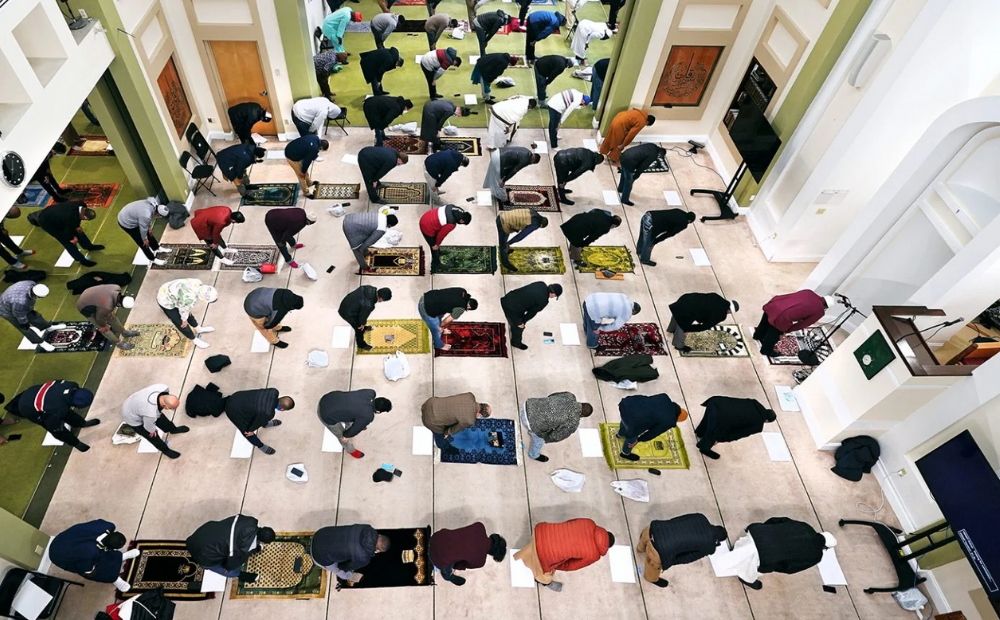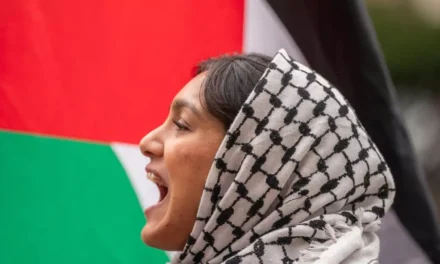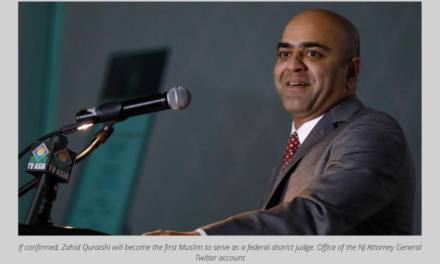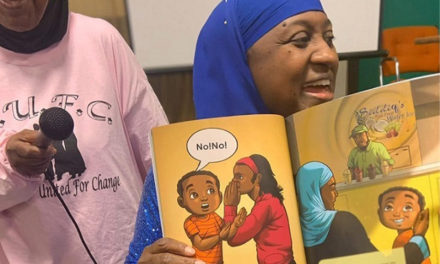Worshippers bow in prayer at the Islamic Society of Boston during the first Friday of the holy month of Ramadan, April 16, 2021, in Boston. (AP Photo/Charles Krupa)
Two decades after 9/11, Americans are still getting to know their Muslim neighbors. New data may help.
(RNS) — Twenty years ago, Americans hardly gave their Muslim neighbors a thought. Then came 9/11, and our opinions suddenly blossomed. Two decades later we may be past assuming that Muslims want to topple the American government, but other supposed givens — that Muslims tend to be conservative, for instance — have been challenged in a new poll that shows how rudimentary our understanding of American Muslims can be.
Start with the finding in a new poll, commissioned by Emgage and Muslim Public Affairs Council, that Muslim Americans voted overwhelmingly for Joe Biden in 2020, with 86% support. Only 6% voted for Donald Trump.
These numbers should not surprise those who have followed Trump’s multiple negative comments about Muslims, his hotly debated travel bans that disproportionately targeted Muslim countries and the spike in anti-Muslim hate crimes under his leadership.
But the survey of more than 500 Muslim Americans also gives us a picture beyond the vote into how Muslim Americans view the Biden administration and key domestic and foreign policies.
It’s not surprising that a majority of Muslim Americans want the administration to combat white supremacy, Islamophobia and hate-violence, which have direct, negative consequences for Muslim Americans. Their interest in addressing inequalities and enhancing access to health care, however, is more counterintuitive for a group we think of as first-generation immigrants. More than three in four American Muslims support Medicare for All, and 78% of Muslim voters believe the tax system is too generous to the rich.
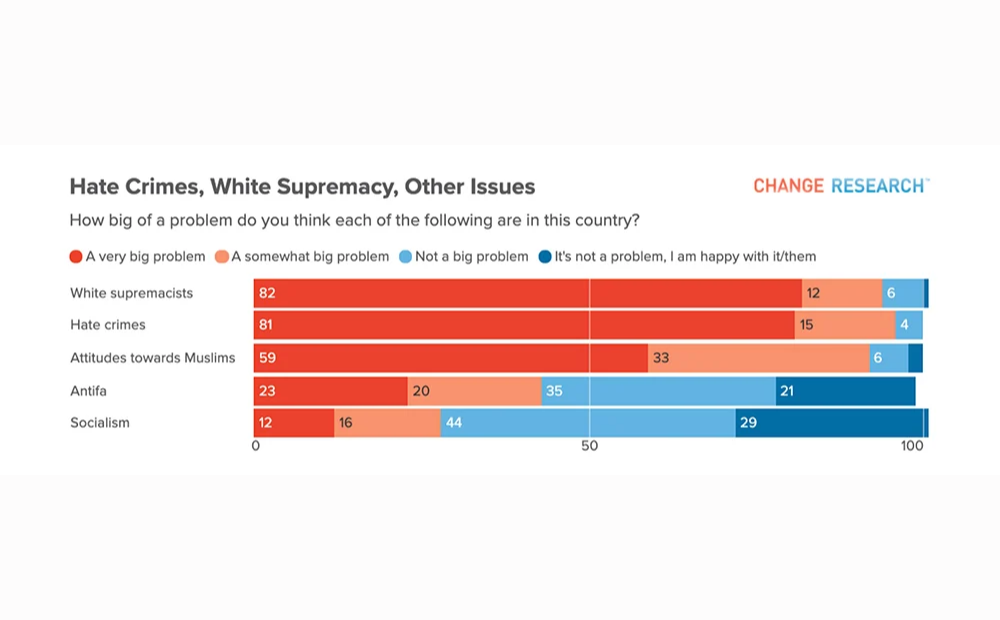
“Hate Crimes, White Supremacy, Other Issues” Graphic courtesy of Change Research
These progressive stances are easier to understand if one is familiar with the justice orientation of Islam, as well as the demographic makeup of the American Muslim community. One-third of Muslim households in America are at or below the poverty line, making Muslims the most likely faith community to report low income levels.
These lived experiences, combined with Islamic values of caring for those who are less fortunate, tend to produce voters who champion the rights of those on the margins.
Muslim Americans’ feelings about U.S. foreign policy also seem self-explanatory on the surface: They want the Biden administration to fight the persecution of Palestinians, Uyghurs in China and Rohingya in Burma. These concerns no doubt reflect their concern for their fellow Muslims, those who share a global Islamic vision of familyhood (ummah).
But these assumptions also turn out to be overly simplistic. Muslim Americans also want the U.S. to pursue human rights when Muslim-majority countries perpetrate atrocities against civilians (e.g., Syria), even to the point of military force. It’s short-sighted and misguided to simply ascribe Muslim-centric motivations to the views of Muslim Americans.
The same impulse to stand up for the most vulnerable, a teaching found in the Quran and the hadith alike, is visible, too, in the answers Muslims gave in the Emgage/MPAC poll about discrimination that they and other groups face. Some 23% considered addressing discrimination and hate as the top priority, while 82% said white supremacists are “a very big problem.”
Twenty years after their Muslim neighbors entered most Americans’ consciousness, it’s time we learn more about this critical and rapidly growing segment of the American population and a community that is increasingly flexing its political muscles in the U.S. and all over the world. This invaluable poll is a start.
